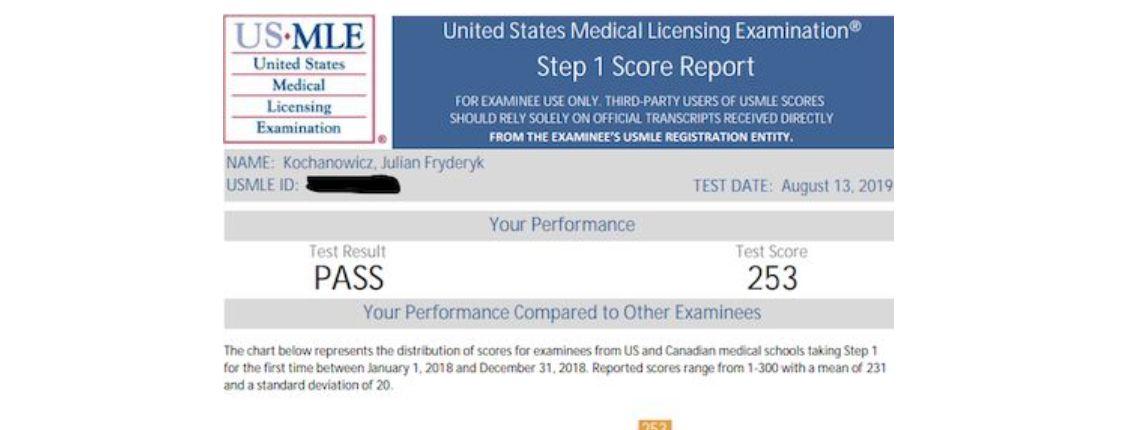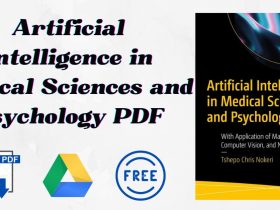
Hey fellow STEP 1 takers,
I’ve gotten inspired by many of these STEP 1 experience reports and they’ve guided me along every step of the way during my prep. So first of all, thank you to everyone in this group that shared their experience with this exam. It wouldn’t have been possible without you.
During prep, I was a 3rd-year student of a 6-year M.D. program at the Poznan University of Medical Sciences.
Study time: 10-12h every day for 9 months, except a 1-week semester break and another 4-day break after my CBSE. I’ll consider the start of my preparation the time I started to practice questions and using First Aid (FA).
GET PIXORIZE VIDEOS USMLE STEP 1 2020
Assessments:
NBME 13 (15 weeks before the exam): 36 mistakes = 205
CBSE (7 weeks before): 238 (85 on CBSE score report)
UWSA1 (8 days before): 262
NBME 18 (6 days before): 25 mistakes = 245-249
NBME 21 (5 days before): 27 mistakes = 250
UWSA2 (4 days before): 245
Free 120 (4 days before): 82%
STEP 1 on the 13th of August: 253
Download All NBMEs From 1 To 24 With Answers
Resources:
Behavioral Science, Biochem, Genetics, Immunology, Pharm, Physio: Kaplan lectures
Biostats: Randy Neil youtube videos, Uworld Biostats review
Anatomy: Shelf notes Anki deck
Ethics: 100 cases by Conrad Fischer
Micro, Pharm: sketchy
Patho: Pathoma
All organ systems: BnB
First Aid
Anki
Q Banks: Kaplan, USMLE-Rx, Uworld (UW)
(9200 qs in total including the ones I’ve seen twice.)
Strategy:
Let me start off by saying that I wouldn’t consider myself as particularly intelligent or a super-fast learner, which is why I needed to inform myself about the most effective and productive ways of using every second of my time to avoid wasting years to get ready for the exam. Before you start studying whatsoever I highly recommend you to research effective study strategies. There are countless videos on this topic and many amazing YouTubers like
Ali Abdaal and Med School Insiders by Kevin Jubbal, MD that teaches about the advantages of active recall and how borderline useless it is to reread and review textbooks and video lectures. This is not taught in school or uni and is in my opinion absolutely essential to make the most out of your time.
Maximizing productivity was an ongoing process but I understood quickly that I will have to utilize the methods of active recall and try going through as many qs as possible to achieve my goals in the shortest time possible. I started off by solving 10-20 Kaplan qs a day and carefully reading and understanding every sentence in the explanations. The rest of the day I would watch video lectures and study the material required to pass my uni courses. Along
with this routine, I would write down important details in my FA. As my FA started to fill up with notes, I found this habit to be quite ineffective because I would simply forget the things I previously wrote down and trying to find a specific note would turn into a frustrating task.
Download First Aid Express Step 1 2019 (USMLE-Rx) Videos + FA 2019 Book
Instead, I started making Anki flashcards, whose intelligent spaced repetition would never allow me to forget my notes again. Anki is amazing for learning stupid details that are pure memorization and there is quite a lot of that in medicine. So put your fancy highlighters down and start typing! I never used premade decks. Simply because you can make flashcards that are perfectly tailored to your needs that are not too complex or too concise. There is a learning curve associated with making your own cards but don’t give up, its worth it! I used a screenshot program to copy whole tables and diagrams from FA and UW, which allows you to create cards within seconds. (These decks are now deleted and have never been distributed so keep your lawyers on the leash.)
Even though it is important to memorize minute details, it’s even more important to learn the concepts, which is best done by solving qs. For this reason, I never spend more than 2h a day on Anki. Over the months I tried to maximize time spent on qs and worked my way up to doing 40 qs and 6 weeks before the exam I’d do 80 qs a day. I finished Kaplan and started UW to do it twice.
Get Complete Uworld Qbank 2020 For USMLE Step 1
By the time I started my 2nd pass, I realized that doing the same qs twice is not very effective. When seeing some of the qs my second time I wasn’t trying to get to the right answer through logical thinking but by trying to recall what I
thought the right answer was. I think if you study the concepts properly and complement this process with Anki the first time around, there is no need for a 2nd pass. At this point, I bought Rx for one month to keep myself exposed to new qs, 2 weeks before my estimated exam date I took UWSA1 and was positively surprised by my score and decided to book a date for the following week. Over the following days, I took some NBMEs and UWSA2 followed by free 120 back-to-back. I wouldn’t recommend using NBMEs solely to learn the material because having to manually look up explanations is a pain and not a good use of your time unless you finished all Q banks. Instead, use them to
assess your grade and practice your stamina shortly before the exam date.
Preparing for this exam was a huge effort and the sheer amount of information that you have to learn will be daunting in the beginning but seeing the green progress bar on UW and competing with the person you were yesterday can turn into an enjoyable challenge. I gained priceless medical knowledge and learned a lot about myself and how far I can push myself.
I’m more than happy to help you out if you have more questions about the prep and especially things that I couldn’t fit into this summary including what add-ons and apps I used for Anki, staying physically and mentally healthy, etc. Just shoot me a DM!
“The people who get what they’re after are very often the ones who just stick around long enough” – Austin Kleon
#eyesontheprice
#stopwhiningkeepgrinding
Thanks for reading and good luck!
Julian Kochanowicz

![8 Months USMLE Step 1 Experience 2023 Score [PASS].](https://medbooksvn.org/wp-content/uploads/2023/05/8-Months-USMLE-Step-1-Experience-Score-PASS-280x210.png)


I like to receive medical letters.